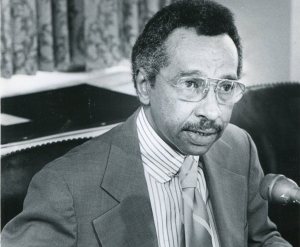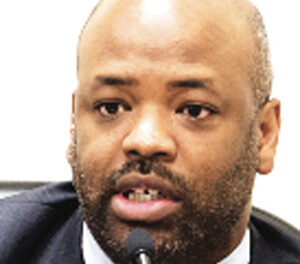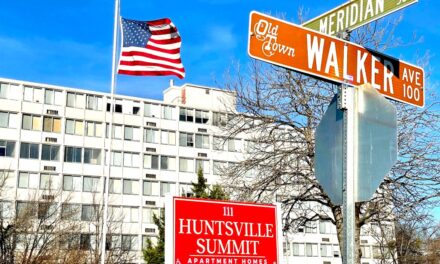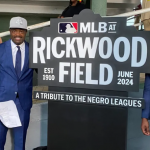By Aria Brent,
AFRO Staff Writer,
abrent@afro.com
September is Prostate Cancer Awareness Month, making right now the perfect time to learn how to recognize symptoms of the disease and what treatment options are available.

Rev. Dr. Kevin Slayton of Northwood- Appold United Methodist Church (Northwood- Appold UMC) in Northeast Baltimore recently hosted a panel discussion regarding the second most deadly cancer to American men.
“We are more likely to die from it and that’s because of a lack of information,” said Slayton. “I think that with the Black church being the center of Black life, it’s the place that we should have all conversations.”
For Slayton, the conversation is personal. He is a prostate cancer survivor and someone who recognizes the need for more education on the very common form of cancer.
According to the Prostate Cancer Foundation, for African-American men, “one in six will develop prostate cancer and are more than twice as likely to die from the disease” when compared to “one in eight White men.”
The panel discussion at Northwood- Appold UMC was led by two gentlemen with a series of experiences and backgrounds with prostate cancer, one of them being Robert Ginyard.
Ginyard is a fellow prostate cancer survivor who has begun to advocate and speak out about the risk of prostate cancer. He spoke with the AFRO to discuss his personal experience with prostate cancer and what other men can do to stay cognizant of the disease .

AFRO: When did you receive your diagnosis?
RG: I was diagnosed in 2010. I was 48-years-old at that point. My diagnosis came as a result of my annual physical. Each year, I would go to the doctor, of course, and get a physical. My doctor had noticed that my prostate specific antigen (PSA) levels were escalating, so he asked me to go see a urologist. Once I did see the urologists it was identified that prostate cancer was there.
AFRO: Did your cancer just kind of occur?
RG: There was a family history of prostate cancer, my dad had prostate cancer. The thing about it is that I did not have any symptoms and that’s one of the things that I try to stress, in terms of early detection.With prostate cancer, a lot of times there are no symptoms and when you do finally come up with symptoms, then it’s typically because the cancer has spread.That’s why it’s important to get tested early enough so that if there is something there, it can be treated successfully.
AFRO: How did your treatment go ?
RG: My treatment consisted of a radical prostatectomy, and that is the removal of the prostate gland. That was my initial treatment. There were some benign traces of the cancer left, and that was followed up with radiation treatment and chemotherapy.
AFRO:How long did it take you to be cancer free ?
RG: With surgery, the follow up treatment with hormone therapy and then the radiation it took about six months in all. I recovered well after the treatments. I didn’t experience any erectile dysfunction that was long standing. I’ve been living cancer free and feeling good.
AFRO: How can prostate cancer be fatal?
RG: It can be, of course, if it’s not treated. Sometimes if it’s so late in the game, in terms of finding out that you have the disease that’s why detection is the key. One, it increases your chances of survival. They say that typically, when prostate cancer is caught in its earliest stages [there is] a five year survival rate which is nearly 100 percent. That’s why it’s important to catch it in its earliest stages. The other thing is when you wait too late to get treatment, a lot of times the treatment cost goes up as well. I know some men that had late stage prostate cancer, and they’re still doing very well in terms of living a good life, but it has taken them a while because of their treatment being so intense.
AFRO: What is your advice to a man who is struggling to deal with prostate cancer diagnosis?
RG: I would encourage him to find his “why” in life, why it’s important to live. I think that’s the foundation. For me, it was my wife and my daughter’s, my mom, my brothers and sisters. That was the foundation for me.Then I think it’s important to follow up and do all the things that keep you around to experience more birthdays and celebrations and things of that nature. I’d say find out your reason to live and that, to me, will supersede any kind of hesitation that you may have with the healthcare system. I know, particularly for African American men, sometimes we come to the table with a little apprehension about what’s going on but knowing the importance of being healthy and being around for your family to me that’s the secret sauce is. Know your why and do any and everything to keep your good health.
AFRO: What advice do you have for all men regarding their prostate health ?
RG: I would say please check with your family to find out if there’s a history of prostate cancer in the family and at your annual physical with your primary care physician, have a conversation with your doctor about a prostate cancer screening. Again, depending on what your age is, you want to make sure that if anything is there it’s detected early. My advice would be to make sure that it’s on your radar screen.
The post What to know about prostate cancer in the Black community: as told by two survivors appeared first on AFRO American Newspapers .











